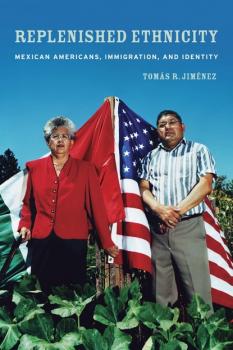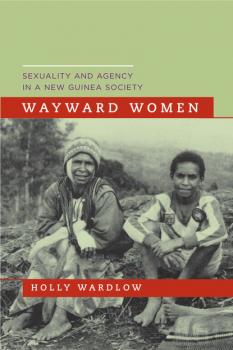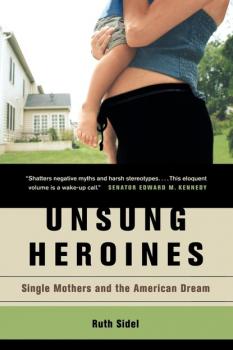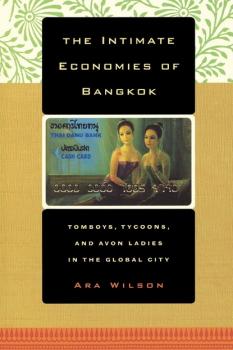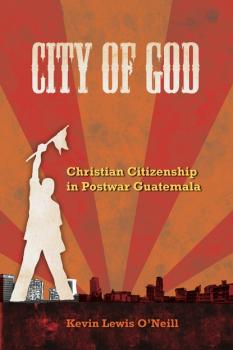ТОП просматриваемых книг сайта:
Культурология
Различные книги в жанре Культурология, доступные для чтения и скачиванияАннотация
In this landmark volume, Alison Brysk has assembled an impressive array of scholars to address new questions about globalization and human rights. Is globalization generating both problems and opportunities? Are new problems replacing or intensifying state repression? How effective are new forms of human rights accountability?<br /><br />These essays include theoretical analyses by Richard Falk, Jack Donnelly, and James Rosenau. Chapters on sex tourism, international markets, and communications technology bring new perspectives to emerging issues. The authors investigate places such as the Dominican Republic, Nigeria, and the Philippines.<br /><br />The contemporary world is defined by globalization. While global human rights standards and institutions have been established, assaults on human dignity continue. These essays identify the new challenges to be faced, and suggest new ways to remedy the costs of globalization.
Аннотация
Unlike the wave of immigration that came through Ellis Island and then subsided, immigration to the United States from Mexico has been virtually uninterrupted for one hundred years. In this vividly detailed book, Tomás R. Jiménez takes us into the lives of later-generation descendents of Mexican immigrants, asking for the first time how this constant influx of immigrants from their ethnic homeland has shaped their assimilation. His nuanced investigation of this complex and little-studied phenomenon finds that continuous immigration has resulted in a vibrant ethnicity that later-generation Mexican Americans describe as both costly and beneficial. <i>Replenished Ethnicity</i> sheds new light on America's largest ethnic group, making it must reading for anyone interested in how immigration is changing the United States.
Аннотация
Nimo, Maha, Safah, Shatha, Emma, Danielle, Kim, Charlene. In a book that once again blends her distinctive flair for capturing the texture of everyday life with shrewd political insights, Cynthia Enloe looks closely at the lives of eight ordinary women, four Iraqis and four Americans, during the Iraq War. Among others, Enloe profiles a Baghdad beauty parlor owner, a teenage girl who survived a massacre, an elected member of Parliament, the young wife of an Army sergeant, and an African American woman soldier. Each chapter begins with a close-up look at one woman’s experiences and widens into a dazzling examination of the larger canvas of war’s gendered dimensions. Bringing to light hidden and unexpected theaters of operation—prostitution, sexual assault, marriage, ethnic politics, sexist economies—these stories are a brilliant entryway into an eye-opening exploration of the actual causes, costs, and long-range consequences of war. This unique comparison of American and Iraqi women’s diverse and complex experiences sheds a powerful light on the different realities that together we call, perhaps too easily, «the Iraq war.»
Аннотация
Americans are feeling insecure. They are retreating to gated communities in record numbers, fearing for their jobs and their 401(k)s, nervous about their health insurance and their debt levels, worrying about terrorist attacks and immigrants. In this innovative volume, editors Hugh Gusterson and Catherine Besteman gather essays from nineteen leading ethnographers to create a unique portrait of an anxious country and to furnish valuable insights into the nation's possible future. With an incisive foreword by Barbara Ehrenreich, the contributors draw on their deep knowledge of different facets of American life to map the impact of the new economy, the «war on terror,» the «war on drugs,» racial resentments, a fraying safety net, undocumented immigration, a health care system in crisis, and much more. In laying out a range of views on the forces that unsettle us, <i>The Insecure American</i> demonstrates the singular power of an anthropological perspective for grasping the impact of corporate profit on democratic life, charting the links between policy and vulnerability, and envisioning alternatives to life as an insecure American.
Аннотация
Written with uncommon grace and clarity, this extremely engaging ethnography analyzes female agency, gendered violence, and transactional sex in contemporary Papua New Guinea. Focusing on Huli «passenger women,» (women who accept money for sex) <i>Wayward Women </i>explores the socio-economic factors that push women into the practice of transactional sex, and asks how these transactions might be an expression of resistance, or even revenge. Challenging conventional understandings of «prostitution» and «sex work,» Holly Wardlow contextualizes the actions and intentions of passenger women in a rich analysis of kinship, bridewealth, marriage, and exchange, revealing the ways in which these robust social institutions are transformed by an encompassing capitalist economy. Many passenger women assert that they have been treated <i>"olsem maket" </i>(like market goods) by their husbands and natal kin, and they respond by fleeing home and defiantly appropriating their sexuality for their own purposes. Experiences of rape, violence, and the failure of kin to redress such wrongs figure prominently in their own stories about becoming «wayward.» Drawing on village court cases, hospital records, and women’s own raw, caustic , and darkly funny narratives, <i>Wayward Women</i> provides a riveting portrait of the way modernity engages with gender to produce new and contested subjectivities.
Аннотация
This compelling book destroys the derogatory images of single mothers that too often prevail in the media and in politics by creating a rich, moving, multidimensional picture of who these women really are. Ruth Sidel interviewed mothers from diverse races, ethnicities, religions, and social classes who became single through divorce, separation, widowhood, or who never married; none had planned to raise children on their own. Weaving together these women’s voices with an accessible, cutting-edge sociological and political analysis of single motherhood today, <i>Unsung Heroines</i> introduces a resilient, resourceful, and courageous population of women committed to their families, holding fast to quintessential American values, and creating positive new lives for themselves and their children. What emerges from this penetrating study is a clear message about what all families—two-parent as well as single parent—must have to succeed: decent jobs at a living wage, comprehensive health care, and preschool and after-school care. In a final chapter, Sidel gives a broad political-economic analysis that provides historical background on the way American social policy has evolved and compares the situation in the U.S. to the social policies and ideologies of other countries.
Аннотация
Bangkok has been at the frontier of capitalism's drive into the global south for three decades. Rapid development has profoundly altered public and private life in Thailand. In her provocative study of contemporary commerce in Bangkok, Ara Wilson captures the intimate effects of the global economy in this vibrant city. <br /><br /><I>The Intimate Economies of Bangkok </I>is a multifaceted portrait of the intertwining of identities, relationships, and economics during Bangkok's boom years. Using innovative case studies of women's and men's participation in a range of modern markets—department stores, go-go bars, a popular downtown mall, a telecommunications company, and the direct sales corporations Amway and Avon—Wilson chronicles the powerful expansion of capitalist exchange into further reaches of Thai society. She shows how global economies have interacted with local systems to create new kinds of lifestyles, ranging from «tomboys» to corporate tycoons to sex workers. <br /><br />Combining feminist theory with classic anthropological understandings of exchange, this historically grounded ethnography maps the reverberations of gender, sexuality, and ethnicity at the hub of Bangkok's modern economy.
Аннотация
This richly detailed study chronicles recent political events in southern Mexico, up to and including the July 2000 election of Vicente Fox. Lynn Stephen focuses on the meaning that Emiliano Zapata, the great symbol of land reform and human rights, has had and now has for rural Mexicans. Stephen documents the rise of the Zapatista rebellion in Chiapas and shows how this rebellion was understood in other parts of Mexico, particularly in Oaxaca, giving a vivid sense of rural life in southern Mexico. Illuminating the cultural dimensions of these political events, she shows how indigenous Mexicans and others fashioned their own responses to neoliberal economic policy, which ended land reform, encouraged privatization, and has resulted in increasing socioeconomic stratification in Mexico.<br /><br />Mixing original ethnographic material drawn from years of fieldwork in Mexico with historical material from a variety of sources, Stephen shows how activists have appropriated symbols of the revolution to build the contemporary political movement. Her wide-ranging narrative touches on the history of land tenure, racism, gender issues in the Zapatista movement, local political culture, the Zapatista uprising of the 1990s and its aftermath, and more. A significant addition to our knowledge of social change in contemporary Mexico, <i>Zapata Lives!</i> also offers readers a model for engaged, activist anthropology.
Аннотация
In Guatemala City today, Christianity isn't just a belief system–it is a counterinsurgency. Amidst postwar efforts at democratization, multinational mega-churches have conquered street corners and kitchen tables, guiding the faithful to build a sanctified city brick by brick. Drawing on rich interviews and extensive fieldwork, Kevin Lewis O'Neill tracks the culture and politics of one such church, looking at how neo-Pentecostal Christian practices have become acts of citizenship in a new, politically relevant era for Protestantism. Focusing on everyday practices–praying for Guatemala, speaking in tongues for the soul of the nation, organizing prayer campaigns to combat unprecedented levels of crime–O'Neill finds that Christian citizenship has re-politicized the faithful as they struggle to understand what it means to be a believer in a desperately violent Central American city. Innovative, imaginative, conceptually rich, <i>City of God </i>reaches across disciplinary borders as it illuminates the highly charged, evolving relationship between religion, democracy, and the state in Latin America.
Аннотация
As Karyn R. Lacy's innovative work in the suburbs of Washington, DC, reveals, there is a continuum of middle-classness among blacks, ranging from lower-middle class to middle-middle class to upper-middle class. Focusing on the latter two, Lacy explores an increasingly important social and demographic group: middle-class blacks who live in middle-class suburbs where poor blacks are not present. These «blue-chip black» suburbanites earn well over fifty thousand dollars annually and work in predominantly white professional environments. Lacy examines the complicated sense of identity that individuals in these groups craft to manage their interactions with lower-class blacks, middle-class whites, and other middle-class blacks as they seek to reap the benefits of their middle-class status.
Информация о книге
Автор произведения Karyn Lacy
Жанр Культурология
Серия George Gund Foundation Imprint in African American Studies


